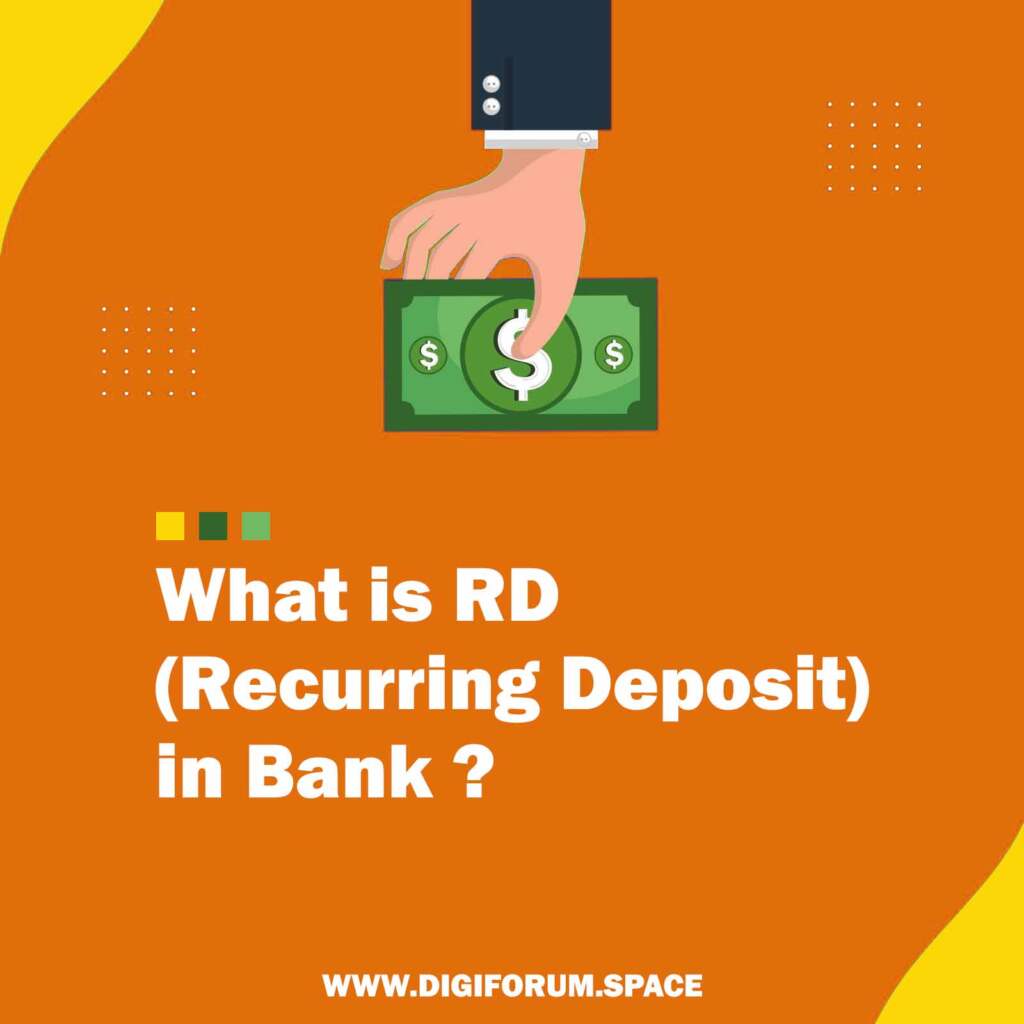
What is Recurring Deposit?
In the world of finance, there are various investment avenues available to individuals looking to grow their savings. One such option that often appeals to those seeking a disciplined approach to saving is the Recurring Deposit (RD). A recurring deposit is a popular financial instrument offered by banks and financial institutions that allows individuals to save a fixed sum of money on a regular basis while earning interest over a predetermined period. In this article, we’ll delve into the details of what a recurring deposit is, how it works, its benefits, and considerations to keep in mind before investing in one.
What is a Recurring Deposit (RD)?
A Recurring Deposit is a type of term deposit offered by banks and financial institutions, designed for individuals who want to save a specific amount of money on a monthly basis. It’s an ideal option for those who may not have a lump sum to invest upfront but still wish to benefit from a fixed deposit-like interest rate. RDs are often considered a more disciplined way of saving as they encourage regular contributions.
Related Articles
How does a Recurring Deposit Work?
The functioning of a recurring deposit is quite straightforward. Here’s how it typically works:
- Initial Deposit: To open a recurring deposit account, you need to make an initial deposit. This can be a relatively small amount compared to lump-sum fixed deposits.
- Regular Monthly Contributions: After the initial deposit, you are required to contribute a fixed sum of money at regular intervals – usually on a monthly basis. This fixed amount is pre-decided when you open the account.
- Interest Accumulation: The money you deposit earns interest, which is compounded quarterly in most cases. The interest rate offered on RDs is generally lower than that of fixed deposits but higher than regular savings accounts.
- Maturity Period: A recurring deposit has a fixed tenure, usually ranging from 6 months to 10 years. The interest rates and maturity periods vary from bank to bank.
- Maturity Amount: At the end of the tenure, you receive the maturity amount, which comprises both your principal contributions and the interest earned over the tenure.
Benefits of Recurring Deposits
- Disciplined Savings: RDs encourage disciplined saving habits since you commit to making regular contributions. This is particularly useful for those who struggle to save consistently.
- Low Entry Barrier: RDs can be started with a relatively small initial deposit, making it accessible to a wide range of individuals.
- Steady Returns: The interest earned on RDs is predictable and assured, making it a safe investment option.
- No Market Risks: Unlike investment options tied to the stock market, RDs are not influenced by market fluctuations.
- Flexible Tenure: RDs offer flexibility in choosing the tenure, allowing you to align it with your financial goals.
- Loan Against RD: Many banks offer the facility of taking loans against the RD amount. This can be useful in emergencies, as it provides access to funds without breaking the RD prematurely.
Considerations Before Investing
- Interest Rates: Compare the interest rates offered by different banks before opening an RD account. Higher interest rates can significantly impact your returns over time.
- Penalties: Be aware of penalties for missing monthly deposits. Some banks might penalize you with reduced interest rates or additional charges.
- Premature Withdrawal: While RDs are designed to encourage regular saving, unforeseen circumstances might require premature withdrawal. Understand the penalties and implications of such actions.
- Taxation: The interest earned on RDs is taxable as per your income tax slab. This can impact your effective returns, especially for individuals in higher tax brackets.
- Alternatives: Evaluate whether an RD is the best investment option for your financial goals. Depending on your risk tolerance and investment horizon, other options like mutual funds or fixed deposits might be more suitable.
Conclusion
A Recurring Deposit is a simple and effective financial instrument that offers a disciplined approach to saving money while earning a steady and assured interest rate. It’s particularly attractive for individuals with regular income who want to build a savings corpus over time. By understanding how RDs work, their benefits, and the considerations involved, you can make an informed decision about whether this investment avenue aligns with your financial goals and risk appetite. Always remember to research thoroughly and seek advice from financial experts before making any investment decisions.



